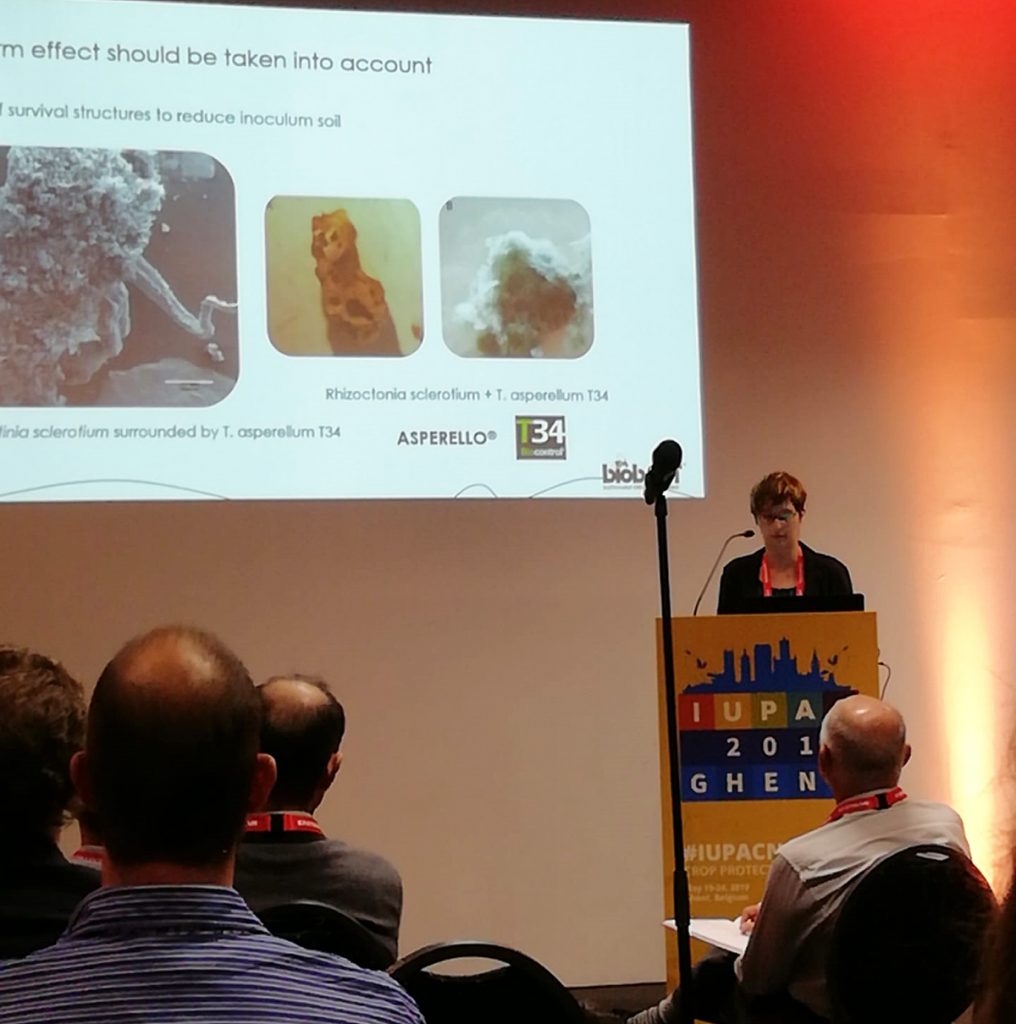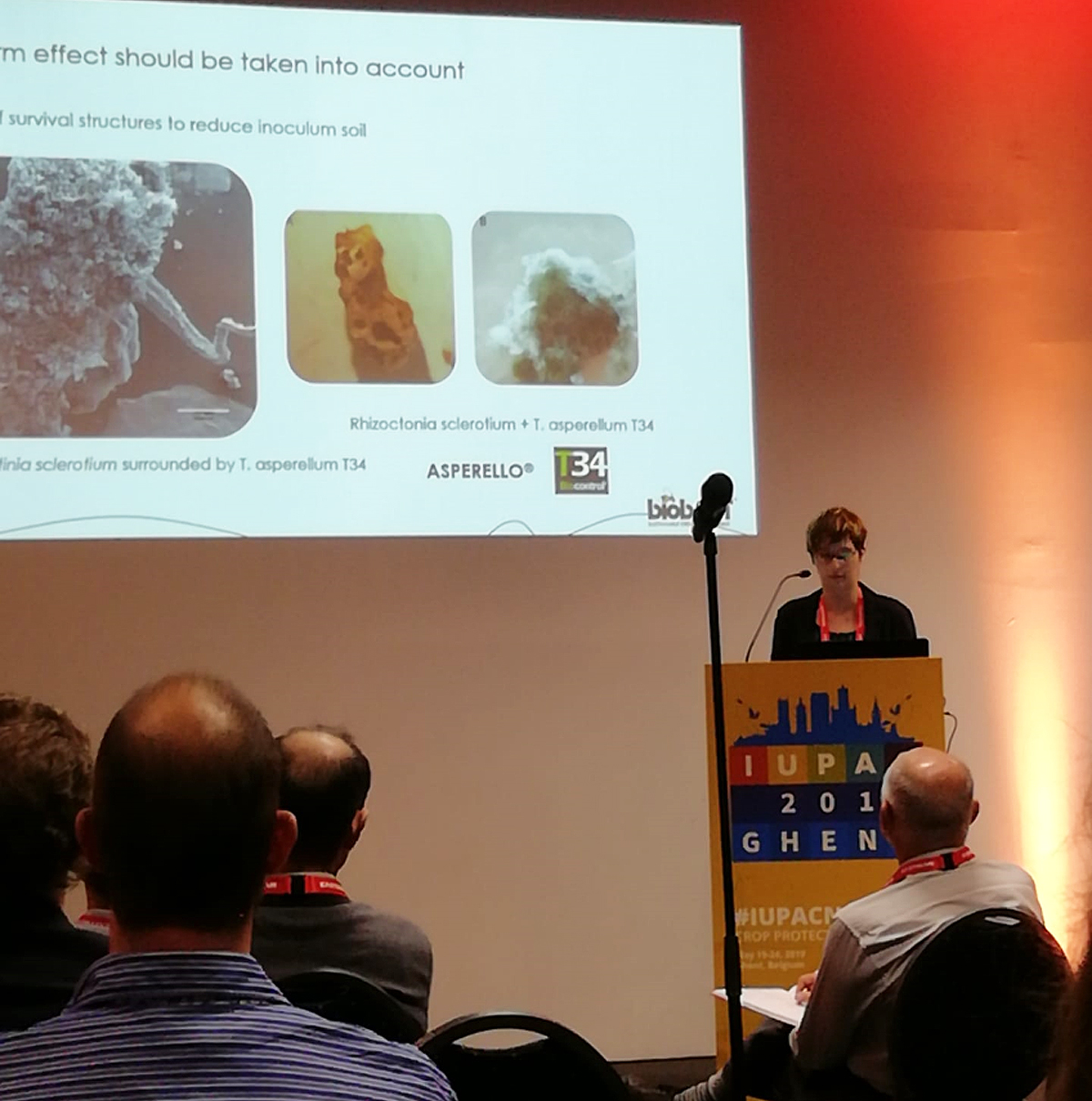Biological control, beyond the point of no return
Future trends in biological control − as well as potential opportunities and obstacles, including constraints surrounding the development of novel bio-pesticides − proved a popular session at the recent IUPAC2019 Conference. The joint lunch meeting was hosted by Biobest*, pioneers and global leaders in biocontrol, together with the project leaders** of SMARTBIOCONTROL – an InterregV-portfolio of projects seeking to identify novel bio-pesticides to fight crop diseases.
Setting the scene, Biobest’s R&D Director Felix Wäckers gave a brief history of biocontrol for high value crops, covering monitoring, beneficial insects and biopesticides. Stressing the importance of monitoring and prevention in successful IPM programmes, he focused on the need to establish biocontrol agents preventatively, for example using specific food supplements to build up a standing army ready to defend a crop should pests and diseases arrive. Turning to biopesticides, Biobest Project Manager for Microbials Sarah Van Beneden explained how to bring a microbial biopesticide from the laboratory to the field. She stressed out the importance not to overlook parameters influencing efficacy, and the need of guiding and educating growers.
Turning to constraints in the development of novel biopesticides, Phillippe Jacques from ULiège-Gembloux Agro-Biotech presented the SMARTBIOCONTROL initiative and their current portfolio of projects. Gathering together a large panel of experts, in the cross-boundary region of Belgium and France, SMARTBIOCONTROL has set out to develop new biological products to fight crop diseases.
The aim of the lunch session was to exchange opinions, information, advice, and knowledge between stakeholders. Delegates considered a number of questions and a healthy discussion ensued.
How to continue the growth of biocontrol?
While it was felt that confidence in the biocontrol market will continue growing, education and guidance of growers will remain very important. Different parties need to play a role, among them biocontrol companies, research stations, consultants and universities.
On the subject of collaboration, which is crucial to innovation, it was felt it was needed between companies, between companies and universities as well as between chemical companies and biocontrol companies.
As IPM requires a holistic approach, there is not one solution. Regulation was identified as a major bottleneck when working towards producing a complete toolbox of biological solutions to comply with the need of growers.
*Felix Wäckers (R&D director), Sarah Van Beneden (Product Manager Microbials), Soraya França (R&D teamleader Microbials) and Rob Moerkens (R&D teamleader Greenlab).
**Philippe Jacques (ULiège-Gembloux Agro-BioTech, project BIOCOMGEST), François Krier (ULille, project BIOPROD), Jenny Neukermans (PCG, project BIOPROTECT), Sylvain Desprez (Materia Nova, project BIOSENS), Essaïd Ait Barka (UReims, project BIOSCREEN).
For more information, please contact Lise Verachtert (lise.verachtert@biobestgroup.com)




